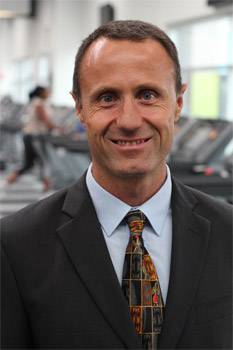Stephen Eddey National Heart Research Month Interview

Stephen Eddey National Heart Research Month Interview
Our heart is one of the most important organs in the body, without it we stop living, which is why it is so important to take good care of it. We speak to Principal of Health Schools Australia, Stephen Eddey who explains to us why it is vital that we support it.
Interview with Stephen Eddey
Principal of Health Schools Australia –Stephen Eddey – an athlete as well as Nutritionist and Naturopath training over 1,000 practitioners a year.
Stephen Eddey is a qualified Nutritionist and Naturopath and is the Principal of Australia's longest established natural medicine college, Health Schools Australia. He has completed a Bachelor of Complementary Medicine as well as a Masters in Health Science and PhD in Nutritional Medicine.
Question: What should we know about our Heart Health?
Stephen Eddey: We are hoping to create awareness about issues of the heart as well as educate people on the importance of maintaining a healthy one. Unbeknownst to many, cardiovascular disease is the leading cause of death in Australia. It kills one Australian every twelve minutes so this month is really about encouraging Australians to make their heart health a priority.
Question: What is chronic heart failure?
Stephen Eddey: According to the Australian Heart Foundation, Chronic heart failure (CHF) is a complex and lethal clinical syndrome accounting for an increasing number of Australian hospital separations and more than 2700 Australian deaths in 2008. Heart failure does not mean the heart has stopped working. Rather, it means that the heart's pumping power is weaker than normal. With heart failure, blood moves through the heart and body at a slower rate, and pressure in the heart increases. As a result, the heart cannot pump enough oxygen and nutrients to meet the body's needs. The chambers of the heart may respond by stretching to hold more blood to pump through the body or by becoming stiff and thickened. This helps to keep the blood moving, but the heart muscle walls may eventually weaken and become unable to pump as efficiently. An estimated 30,000 Australians are diagnosed with the debilitating condition every year and recurrent hospitalisations cost the national economy more than $1 billion each year.
 Question: How can we prevent chronic heart failure?
Question: How can we prevent chronic heart failure?
Stephen Eddey: There is a lot we can do to prevent CHF, which revolves around healthy living and eating. Specifically, cutting out junk foods, grains and trans fats is a great start. Increasing grass fed meats, eggs, vegies, fruits, nuts, seeds, salads and cold water fish is an excellent approach to eating. This primarily prevents the build-up of plaque in the arteries that supply blood to the heart. One of the major causes of congestive heart failure is the reduced flow of blood to the heart that is induced by heart disease or atherosclerosis.
Daily exercise is essential for the prevention of heart disease and thus chronic heart failure. The best type of exercise to complete is the one that you are going to stick to and do on a daily basis. As long as the exercise puts on exertion on your heart, it will be a good exercise to complete. For example, slow walking may not give you the maximum benefits however; jogging or freestyle swimming could.
There are other causes of chronic heart failure however; this could be for an example a faulty valve and regular medical checks can help minimise the impacts of these on the human body.
Question: What are the symptoms related to chronic heart failure?
Stephen Eddey: Common symptoms of heart failure or chronic heart failure include:
Shortness of breath
Swelling of ankles, legs or belly
Weight gain
Tiredness and fatigue
Loss of appetite
Dizziness
Coughing
If you have any of these symptoms and you can't explain how they got there, please check these out with your doctor.
Question: What is the antioxidant, Ubiquinol?
Stephen Eddey: In every cell of the body, a nutrient or coenzyme known as Coenzyme Q10 (CoQ10) can be found which is responsible for providing cellular energy to organs. Ubiquinol is one of two forms of CoQ10 that naturally occurs in the body with the other being Ubiquinone. Ubiquinol, however, is 3-8 times more absorbable than Ubiquinone making it the most effective form of CoQ10 in ready-to-use form.
Question: How does Ubiquinol support our hearts?
Stephen Eddey: Research has shown that CoQ10 is a major pillar of heart support and as the direct and active form of CoQ10, this means that as it enters the body it goes directly to where it is needed, including the heart, without having to be converted from CoQ10.
Research has also indicated that CoQ10 may help to prevent heart failure as those who suffer from the disease were found to have lower levels of the nutrient in their body. This suggests that Ubiquinol, being the active and more bioavailable form, may be a more powerful antioxidant when it comes to heart health.
As we age, stress, suffer from any heart condition or over exert ourselves, our natural levels of Ubiquinol become depleted which is why it is so important to replenish these levels.
Interview by Brooke Hunter
MORE





